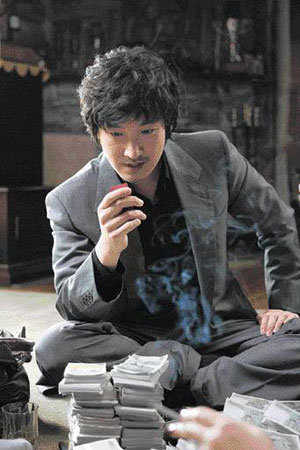Addiction

Various kinds of addiction are penetrating the everyday lives of people in the modern age. The extent of addiction goes beyond alcohol, smoking or narcoticsthere are now people dependent on certain kind of activities, such a gambling, work, Internet games, shopping, watching soap dramas, phone sex or just sex, et cetera.
Caused by excessive secretions of dopamine-
All sorts of addictions are relevant to the secretion of dopamine. Dopamine is a neurological substance that is associated with pleasure. When a certain material or activity stimulates the pleasure center of the brain, it intensively produces dopamine. Once people experience the euphoria of dopamine, they attach it to their memories and pursue more.
Dopamine is also made when you eat after being hungry. Similarly, when you win a hole-in-one while playing golf or listen to favorable music, dopamine levels spike.
Dopamine produced artificially through activities such as drinking, smoking, gambling, or taking drugs tends to be emitted excessively in a short time. Once you get used to the strong stimuli of this neurosubstance, you can hardly remain satisfied with trivial and natural events that usually bring us happiness.
The pleasure that you have experienced once is written in your brain. In order to bring the elation back, memory wills you to do the same thing again, but you might need something stronger this time, because your body has developed tolerance.
That is why people, when they smoke, feel that the stimulus gets weaker than the first time as they keep on, said Kim Dae-jin, M.D., a professor of neuropsychiatry at Catholic University of Koreas Holy Family Hospital.
A culture tolerant of drinking and smoking
As life gets complicated and distressed, and environment surrounding us grow more piquant, types of addiction also start to vary.
Of course it is not true that all people become abusers by the same stimulus. If you have a family history, the chances of becoming one are three to four times higher. Kids with eccentric level of curiosity or tenacity when indulged in something have greater odds. Adults who frequently feel depression, uneasiness, or emptiness are at higher risk to become addicts as well.
Abused teenagers who had been under severe stress also have abnormally developed pleasure centers, and therefore easily become dependent on addictive stimulants. If you were exposed to stimulants such as cigarettes or alcohol while young, you might have had higher chances to grow into an addict.
Addiction is a brain disease. If dopamine secretions are constantly activated, tolerance and withdrawal symptoms develop, and eventually they inflict fatal damage on the frontal lobe of the brain, which controls our thinking and decision-making processes. In this case, it would be impossible to completely restore the brain to its original condition. But partial cures can help people enough to return to their ordinary daily lives, just as patients with hypertension or diabetes do.
Mere verbal warnings rarely help addicts. The patient has to recognize the addiction as a disease, and step forward to receive treatment.
How to overcome-
If already addicted, it is hard to defeat it relying only on will. It is necessary to consult an expert, receive diagnosis, and undergo chemotherapy as well as cognitive-behavioral therapy, which change a patients thinking system.
Most addictions occur simultaneously. People feel like smoking when they drink because all memories regarding pleasure are stored in the frontal lobe. Therefore, an alcoholic can never consider himself cured after switching preferences to cigarettes, and a gambling addict cannot be rehabilitated as long as he or she drinks alcohol. All of them remain addicted; it is only the object of addiction that has changed.
Pundits advise that it is important to induce addicts to good addictions instead of bad addictions. For instance, you can switch from drinking to climbing rather than smoking. They should be encouraged to activate their dopamine systems through socially and medically healthy activities.
Once addiction is given in to, wholesome relationships with friends or families start to crumble, and an addict finds himself or herself surrounded by like people. If you think you finally escaped the swamp through treatment, you need to renew your self-identity and find new companions who can share your hobbies. Instead of seeing yourself as a loser, for a cure, it is more helpful to build up confidence by thinking, I am recovering from a brain disease and a valuable individual.
*Kim Dae-jin (neuropsychiatry, Catholic University of Koreas Holy Family Hospital), Shin Yeong-cheol (psychiatry, Kangbuk Samsung Medical Center) and Ha Ji-hyun (neuropsychiatry, Konkuk University Hospital) supplied the expertise for this article.
artemes@donga.com







